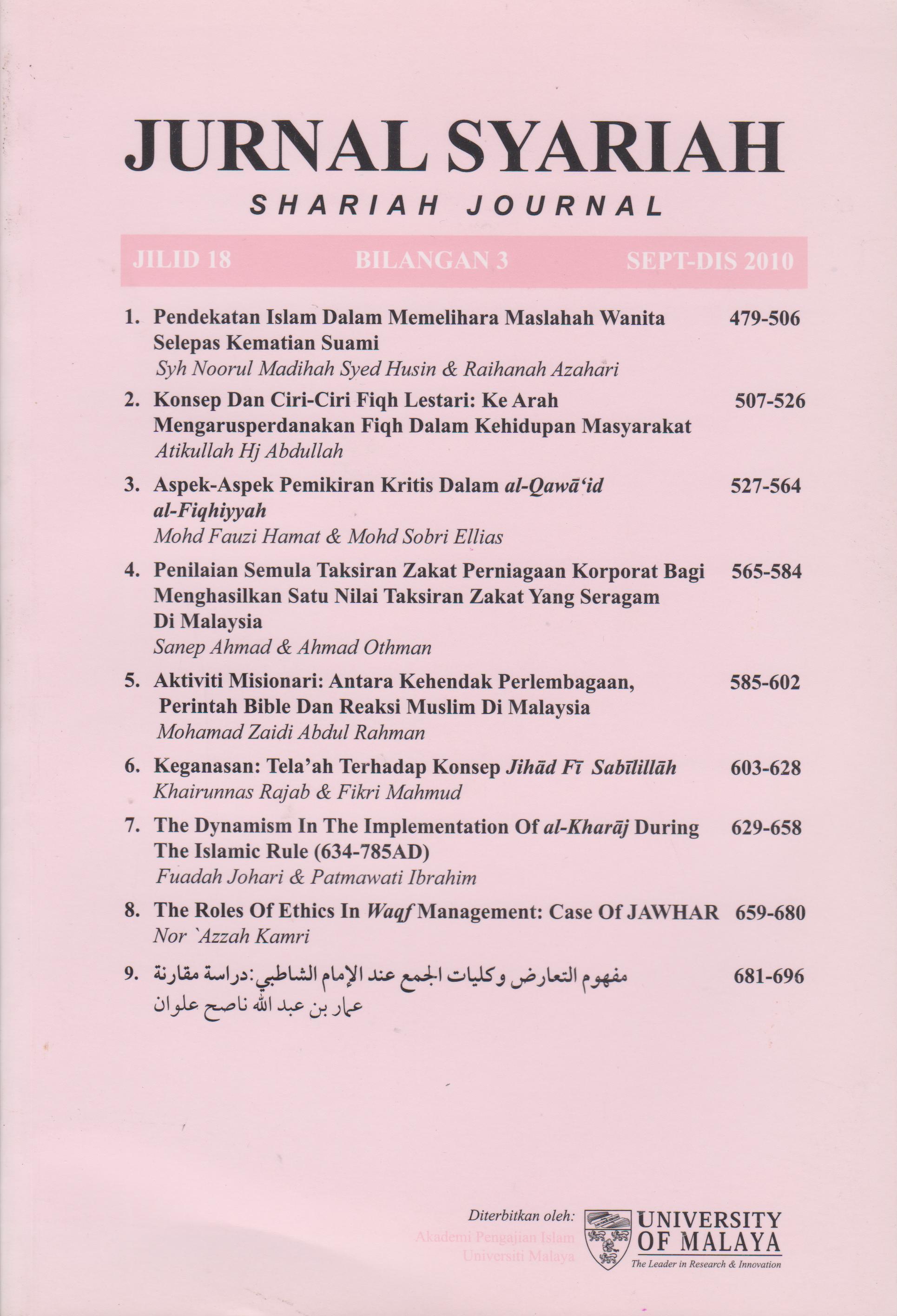PEMIKIRAN "MESRA GENDER" DALAM KARYA FIQH ULAMA MELAYU KLASIK
Keywords:
gender, feminist, misogynist, jawi book, Malay MuslimAbstract
This article discusses the classical Malay Muslim scholars thought, especially concerning Islamic law from a gender perspective. It also scrutinizes the classical Malay Muslim scholar’s background and education as well as their role in the socialization of Islamic teachings in Malay society. They have played a significant role in introducing changes to Muslim society. Most classical Malay Muslim scholars are from the Shafiite school and are quite prolific in the production of Jawi books, as well as being renowned for their learning based on their experience and international pursuit of knowledge (rihlah ‘ilmiyyah). Usually, in liberal feminism literature, classical Malay Muslim scholars are characterized by various negative traits, including being misogynist, narrow minded, rigid, and backward looking. The enthusiasm of Western secular feminist thought has resulted in the reckless criticism of Muslim scholars and institutions. Religious texts are no longer regarded as sacred, and the views of scholars are dismissed as an ideological collection of perspectives without taking into account their credibility and intellectual value. The guiding principle of higher criticism rather than principled dynamism diverts western feminist groups from the basis of truth. The bad label given will create prejudice against the credibility of Muslim scholars. Hence, researcher should study classical Malay Muslim scholar’s views that are characterized as gender friendly to explain the mistaken perception of anti-Muslim scholars (ulama phobia).
Downloads
Downloads
Published
How to Cite
Issue
Section
License

This work is licensed under a Creative Commons Attribution-NonCommercial 4.0 International License.
COPYRIGHT: All rights reserved. Not allowed to be reproduced any part of articles and contents of this journal in any form or by any way, whether electronic, mechanical, photocopying, recording or otherwise without permission in writing from the Chief Editor, Jurnal Syariah.











